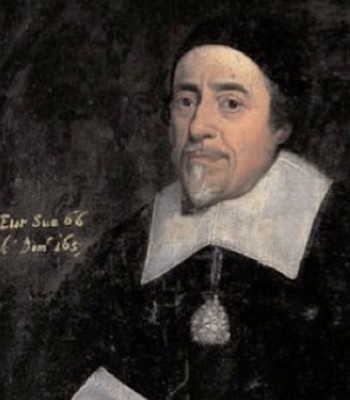William Berkeley and Nathaniel Bacon
The Rebellion

Governor William Berkeley.
The Virginia colony was governed by a general assembly, which included a governor and counselors appointed by the Virginia Company and burgesses elected by the landowning colonists.
William Berkeley served as governor of Virginia from 1641 to 1652 and then again from 1660 to 1677. His first term was very successful: he experimented with crop diversification, encouraged manufacturing, and promoted colonial expansion.
To prevent conflict, Berkeley forced a peace treaty on the new chief of the Powhatans. The treaty said that the tribes of the Powhatan were tributaries to the king of England, meaning that they had to pay a yearly fee to the Virginia colony. It also set a firm geographic boundary between the colonists and the Powhatans. Members of each group were forbidden to cross to the other side without a special pass.
Nathaniel Bacon, a younger, wealthy relative of Berkeley, was born and educated in England. He moved to Virginia with his wife in 1674. When he arrived in the colony, he was appointed as a counselor, providing him with some political power. An extremely ambitious man, Bacon quickly challenged the governor over land use. Bacon maintained that the English could take land from Indigenous tribes in order to prevent warfare, and Berkeley disagreed.

Nathaniel Bacon.

